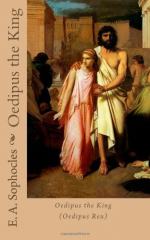|
This section contains 4,360 words (approx. 15 pages at 300 words per page) |

|
SOURCE: “Semiotic Consequences,” in Studies in Twentieth Century Literature, Vol. 6, Nos. 1-2, Fall, 1981, pp. 5-15.
In the following essay, Culler uses Oedipus Tyrannus to illustrate some of his points concerning the importance of semiotics in literary criticism.
If one is interested in the consequences of semiotics for the study of literary signification, one needs a reliable account of what semiotics is or says; and for that it may be important to reflect on the strange consequentiality of semiotics itself, for semiotics is not a continuous discipline with a progressive historical evolution.1 Thinkers have often produced major insights about signs and signification, but semiotics is not the sum of insights about the sign. It comes into being when the problem of the sign is brought to the fore, made to organize a field—a consequential intellectual development.
One consequence of the advent of semiotics is the creation of precursors...
|
This section contains 4,360 words (approx. 15 pages at 300 words per page) |

|


